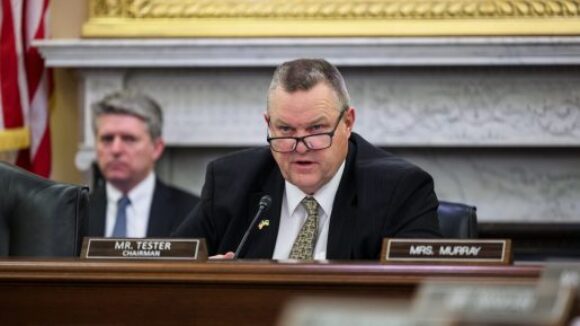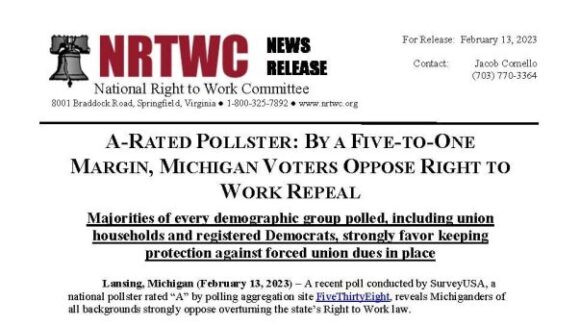After surviving a filibuster in the Colorado State Senate, it appears that an effort to expand the forced-unionism privilege of Big Labor appears ready to move to the Governor’s desk.
The Rocky Mountain News reported that forced unionism proponents in the State Senate “. . . steamrolled a controversial pro-union bill through the Senate on Friday,” but they had to work overtime to do it.
In order to shed light on just what was happening to the workers of Colorado, Right to Work supporters extended debate on the union boss power grab for over eight hours. While still “denouncing the measure as un-American and anti-business,” the bill passed, “but not until Republicans had read and debated an astounding 73 amendments – down from the 300 that were drafted – to try to dilute or kill the bill.”
Democrat Gov. Bill Ritter campaigned as a pro-business moderate, and is being pressed hard to veto the bill.
Fred Brown at the Denver Post agrees that the timing of the bill is a “public-relations disaster.”
Ritter campaigned as a moderate, business-friendly Democrat. So did most of the Democrats running for the legislature. Yet one of their first priorities is to push a bill that benefits only unions.
After a three-hour hearing last week, a Senate committee passed HB 1072 on a 4-3 party-line vote. It already had zipped through the House on party-line votes. It’s the sort of bill that invites party-line voting.
The hearing was in the old Supreme Court chambers, the only room large enough to accommodate big, emotional crowds. About 300 people showed up, many of them leaning against the walls, and 37 of them testified. Pro-business witnesses outnumbered pro-union 25 to 12. . . .
“I honestly am sick at heart with this legislation,” said Tom Clark, director of the Metro Denver Economic Development Corp. “After our successes together, I just don’t understand why this bill is needed.”
Those “successes together” include Democrats teaming up with the business community for such things as light rail, new sports venues and Referendum C.
Christine O’Donnell of the Colorado Restaurant Association said that, as a lifelong Democrat, she finds it “incredible” the party would depart so quickly from the moderate rhetoric of last fall’s elections. “It is bad for the Democratic Party, and it is bad for Colorado,” she said.
And Clark said it will be hard to explain to businesses considering relocating to Colorado “why we chose 1072 as our first business-related piece of legislation.”
Organized labor officials “contend it’s a ‘minor’ change merely removing an ‘archaic’ law that no other state has,” yet, 22 states have Right to Work laws, where workers can not be compelled to join or pay fees to a labor union as a condition of employment.
In Colorado, once union officials have gained monopoly bargaining privilege over employees, union negotiators can’t raise the “union security” (forced dues or fees) issue unless a second vote, requiring a 75% majority, is taken authorizing forced dues as a condition of employment.
That “supermajority” clause was enacted in 1977, ironically as “a compromise” between a Right to Work legislature and Democratic Gov. Richard Lamm when pressure to pass a full Right to Work law was at a maximum.
The Post continued:
Right-to-work sentiment is never far from the surface in Colorado; one pro-business group last week testified it still favors the idea, and if 1072 passes, right-to-work might rise to the top of its priority list.
Paraphrasing Mr. Brown, the state’s so-called Labor Peace Act has kept efforts to pass a Right to Work law at bay over the last decade despite a well organized campaign in the state. But now, in a state with less than 8 percent union membership, a Right to Work law may just be a “new” priority.
We sure hope so.


